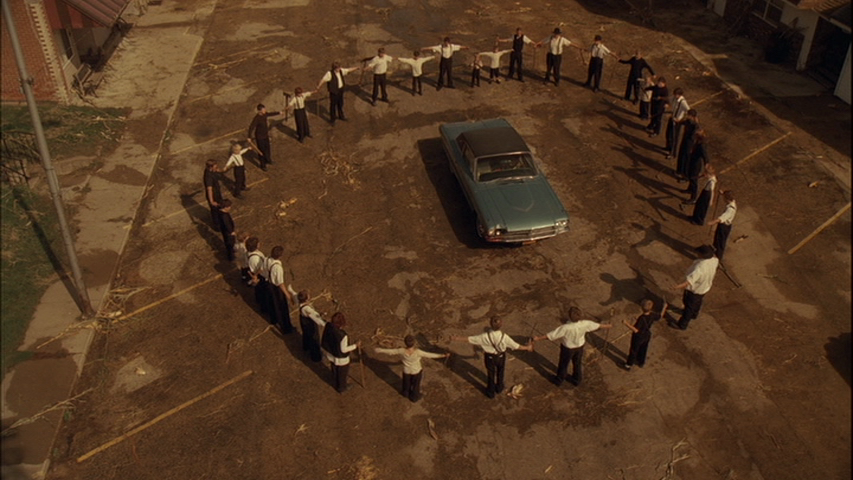My inner free spirit eschews the joyless journey of the heavily laden, so we travel absurdly light. A parental version of my youthful vagabond, I approach the task of packing with determination. Socks, stuffies and magic cards are descending pieces in a live action game of Tetris. Once the children's things have been culled and settled into the van, I pore through my own closet, searching for that elusive combination of endlessly mixable clothing and the mythical jacket of power: one layer to rule them all. Imagining the balmy days and nights ahead, I push aside my summer sweaters, boots, coats and cowls. Like my values and norms, my wardrobe doesn't work well outside of San Francisco. Filtered through this little enclave of counterculture, our daily experience radically diverges from that found in most of the US. The fog is like a tangible border between worlds; a misty moat discouraging all but the most resolute from venturing through the haze and into the rainbow city. With a pang of regret, we packed up our van and headed toward the outskirts of the city, onto one of the highways that circle, warily, but never really enter. We pierced the ghostly veil heading south toward more temperate climates, the vapor rearranging itself behind us like the bricks of Diagon Alley. On the other side, we are ragtag visitors in a foreign land.
Our reluctance to enclose ourselves in a small van with the children for 8 to 10 hours resulted in a late departure. We realized fairly quickly that we'd have to stop for a meal somewhere on I-5. I briefly considered sharing my Evil Twins sour gummies, but in the end went with a more nutritious choice, or so I thought. This is how we came to be in a Chili's near San Jose at around 6:30 pm.
Seen through their fresh eyes, the dimly familiar fixtures of a past life are transformed into an anthropological investigation worthy of its own documentary film. Madagascar could not have proven more exotic or disorienting a setting for my children. Multiple screens mounted on walls showed sports, game shows and network news while each child found a personal device at the table. Thwarted by sheer overstimulation, the children were unable to choose their meals from their screens, so I ordered them all some chicken fingers and lemonade, rare 'treats' compared to their usual fare. The lemonade arrived in bucket sized cups. They gaped, wide-eyed from behind their table tablets. When the much anticipated food arrived they took enthusiastic bites closely followed by expressions of surprised disappointment. They tried a few more mouthfuls before pronouncing the food inedible and turning back to their tablets, loaded with games they quickly tired of playing. Suddenly, their half- full lemonade buckets were magically replaced with new, completely full troughs. "We didn't even order these!" my children cried with an edge to their voices, neither understanding nor trusting this world with too much of everything, none of it worth having. At the next table a crowd of employees suddenly converged to shriek "happy happy birthday" complete with kazoos. Outraged, Charlie demanded to know why people would scream in diners' faces like that while they were trying to eat their dinner. "Well," Jude explained reasonably, "it's not like this is a restaurant."
















